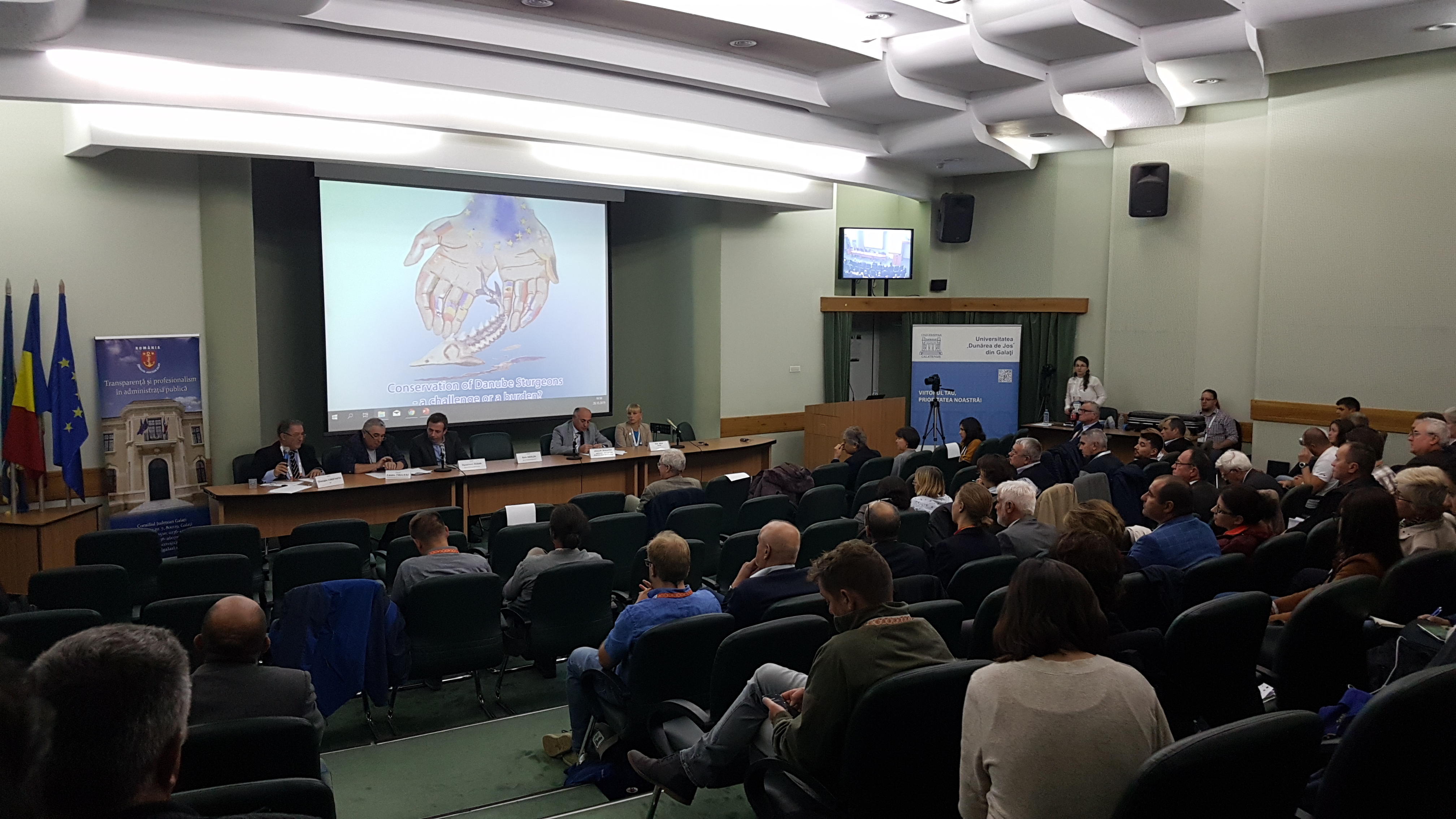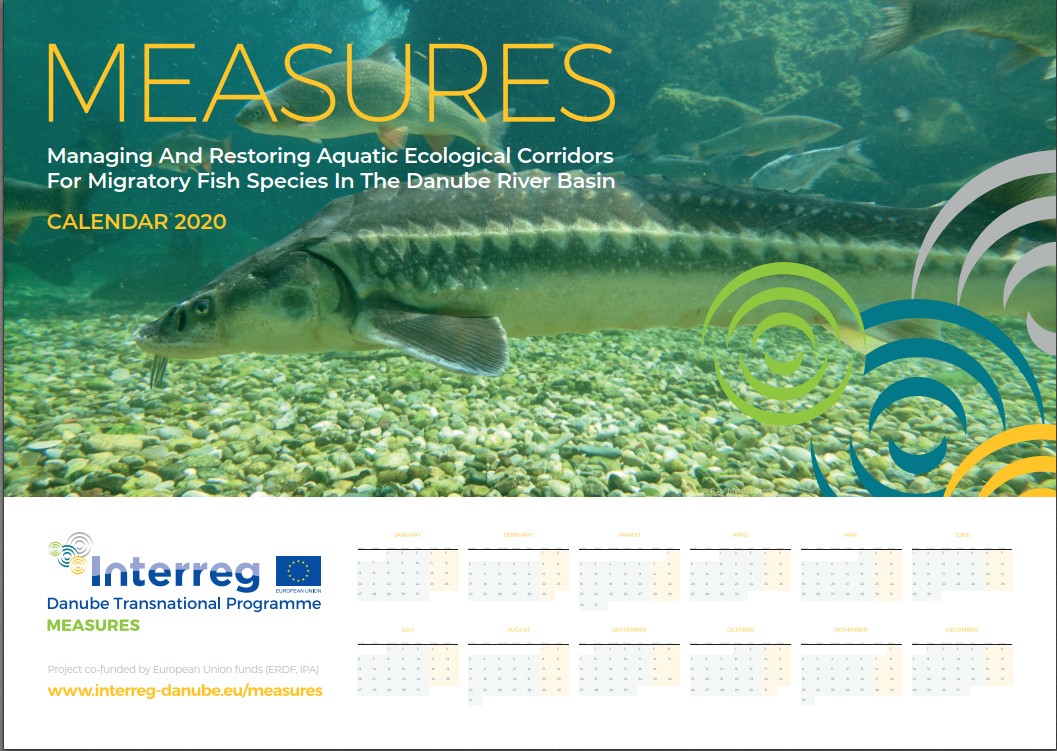|
The end of the year comes with a brief review of the project. We can say it was a good year, full of challenges and interesting activities. Maybe the most important one is the sturgeon stocking events that took place during April 2019 in Baja (Hungary) and Isaccea (Romania) in attempt to stabilize sturgeon populations in the Danube River.
5000 juvenile sterlet (Acipenser ruthenus) were released in Hungary, and more than 1000 of Russian sturgeon (Acipenser gueldenstaedtii) in Romania. The fish was previously tagged, in order to enable identification in case of recapture by in-situ surveys, and assist evaluation of survival rates for those released. This will provide valuable insight for larger stocking plans in the future.
You can find out more about this activity in our video.
 The biggest Conference on sturgeon took place in Galati The biggest Conference on sturgeon took place in Galati
Between 28-30 October 2019, University of Galati hosted the biggest discussion in the past 30 years of sturgeon conservation in the Danube Basin and the Black Sea. 120 delegates of the scientific community, fisheries, water and environmental administrations, and representatives of civil society from 22 countries came together to attend the International Conference “Conservation of Danube Sturgeons – a challenge or a burden”. Galati Declaration can be found on the official website of the conference: www.sturgeon.ugal.ro.
Team meetings – National Workshops and Coordination Meeting
The beginning of 2019 came with some interesting meetings, in Romania and Croatia, where the national workshops were organized. The primary goal of the workshops was to gather all the relevant stakeholders to join their efforts and knowledge in order to achieve the project’s objectives of managing and restoring aquatic ecological corridors for migratory fish species in the Danube River basin through an interdisciplinary and multi-sectoral approach.
In June, after one year through our endeavour, the “Sturgeon Team” gathered at the University of Natural Resources and Life Sciences (BOKU) headquarters in Vienna to summarize the achievements and further planning of the remaining two years of project implementation.
Field activities – a work to be done continuously
As the field presence is very important for our project outputs, it is a continuous work to be done. Along the whole year, countries project teams have done field survey on sturgeon habitats on Danube river and its tributaries. Our aim is to adapt the sturgeon sampling methodology to the specific conditions of smaller tributaries such as the fast flowing Mura and Sava rivers and to find the spawning, wintering, nursery and feeding areas by surveying macroinvertebrate communities in the potential sturgeon habitats.
Sturgeon events – a way to involve communities
Participating or organizing sturgeon events represent one of the main way to get involved with the communities where our work is done. Our colleagues from Bulgaria had a very nice event on Danube Day this year (29th of June). They organized the first Nature Triathlon “Free Danube”, in the city of Ruse. Nearly 70 participants, residents and visitors of the city of Ruse took part in this green adventure.
Furthermore, in a united effort with the World Fish Migration Foundation we plan to rise the public level of awareness by new emotion-oriented live actions at 2020 World Fish Migration Day that will take place on May 16th next year.
MEASURES CALENDAR 2020 - READY TO BE PRINTED

|
